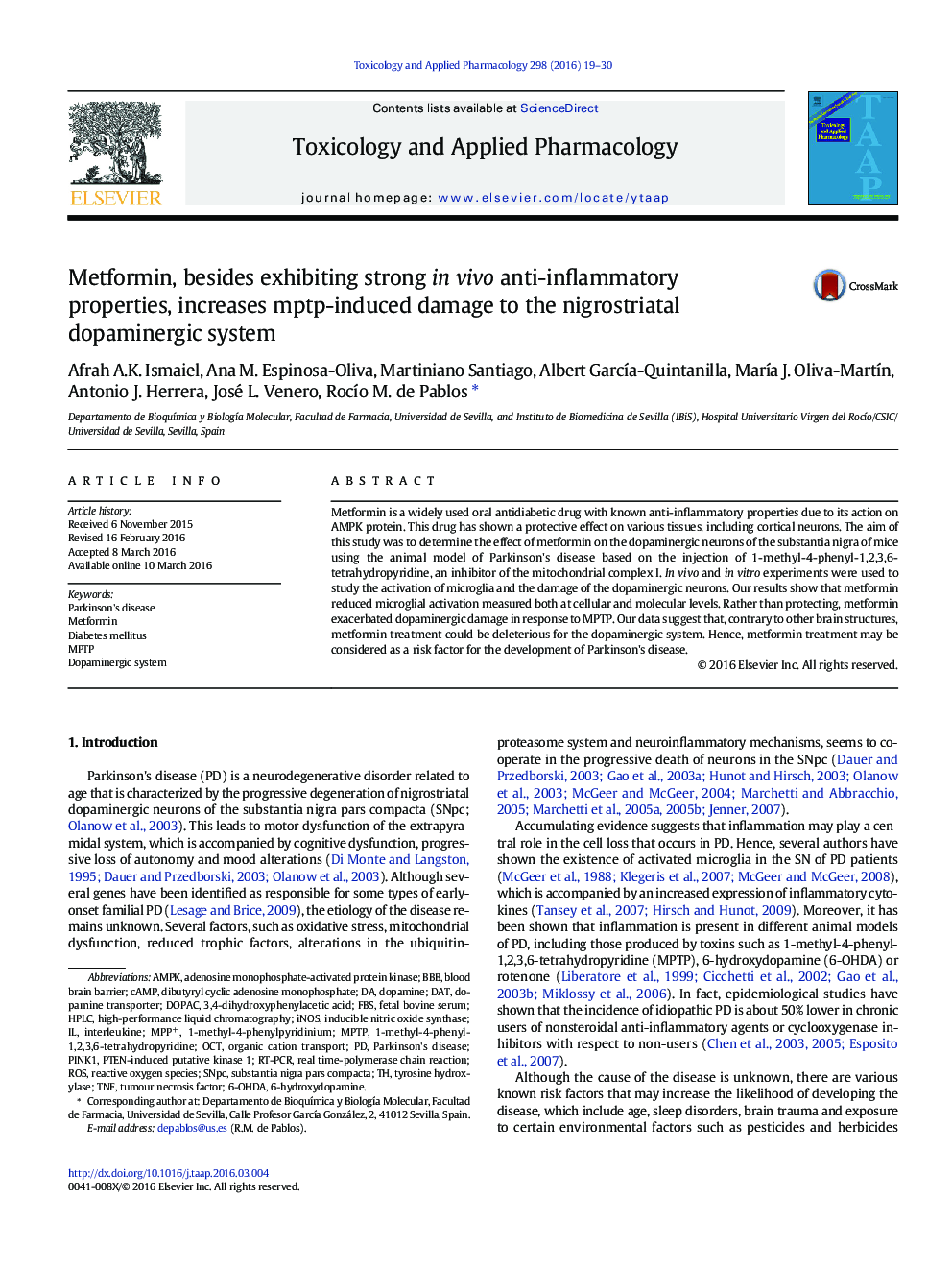| Article ID | Journal | Published Year | Pages | File Type |
|---|---|---|---|---|
| 2568131 | Toxicology and Applied Pharmacology | 2016 | 12 Pages |
•Metformin treatment decreases microglial activation in the MPTP model of Parkinson's disease.•Metformin treatment increases the neurodegeneration in the MPTP model of Parkinson's disease, both in vivo and vitro.•Metformin treatment could be a risk factor for the development of Parkinson's disease.
Metformin is a widely used oral antidiabetic drug with known anti-inflammatory properties due to its action on AMPK protein. This drug has shown a protective effect on various tissues, including cortical neurons. The aim of this study was to determine the effect of metformin on the dopaminergic neurons of the substantia nigra of mice using the animal model of Parkinson's disease based on the injection of 1-methyl-4-phenyl-1,2,3,6-tetrahydropyridine, an inhibitor of the mitochondrial complex I. In vivo and in vitro experiments were used to study the activation of microglia and the damage of the dopaminergic neurons. Our results show that metformin reduced microglial activation measured both at cellular and molecular levels. Rather than protecting, metformin exacerbated dopaminergic damage in response to MPTP. Our data suggest that, contrary to other brain structures, metformin treatment could be deleterious for the dopaminergic system. Hence, metformin treatment may be considered as a risk factor for the development of Parkinson's disease.
Graphical abstractFigure optionsDownload full-size imageDownload high-quality image (78 K)Download as PowerPoint slide
